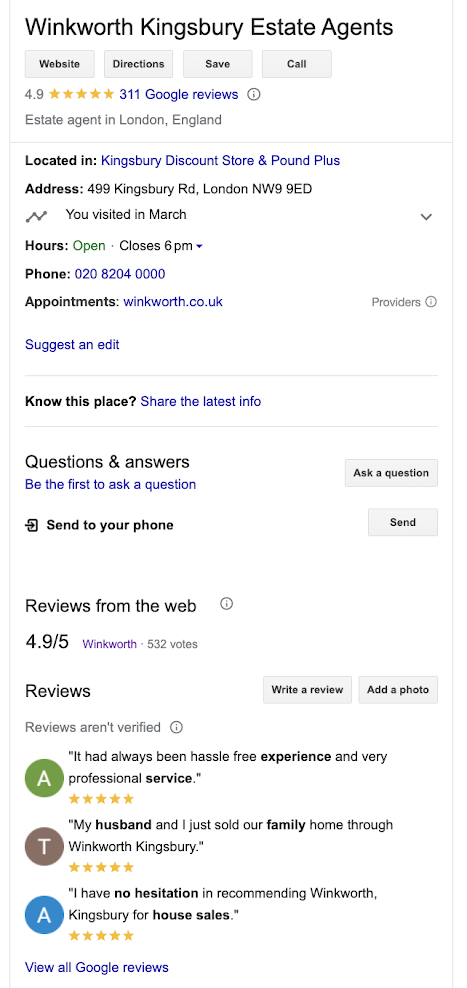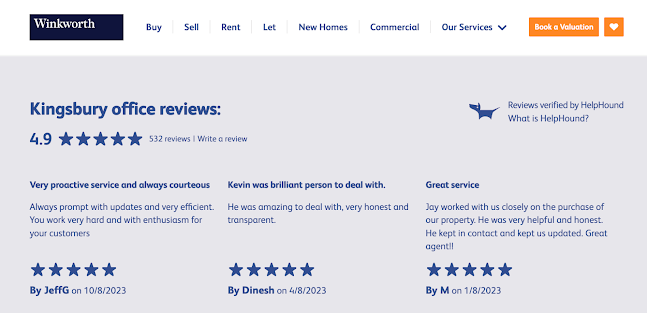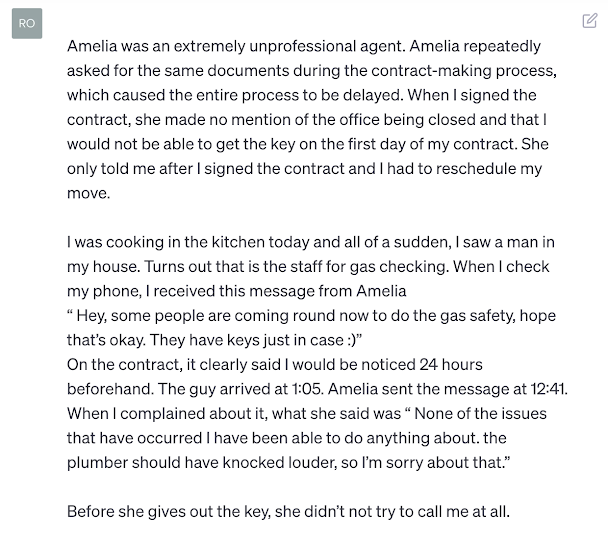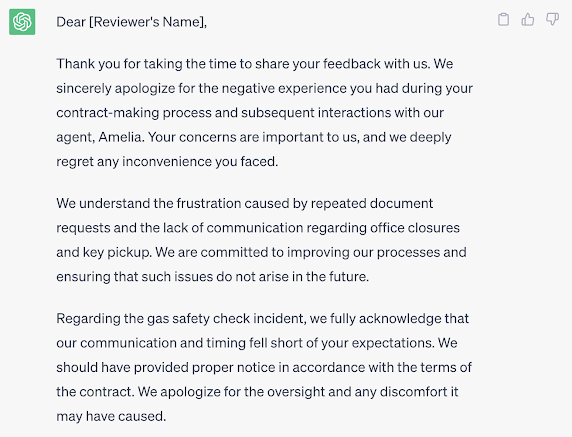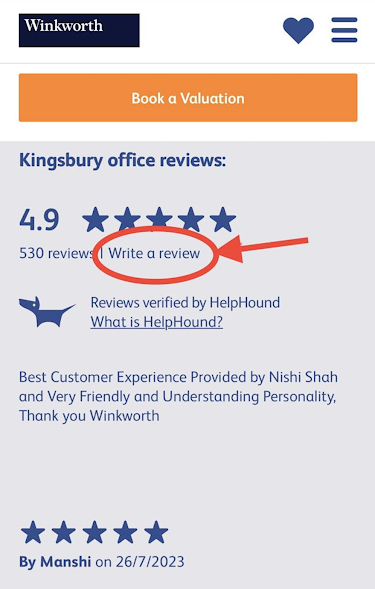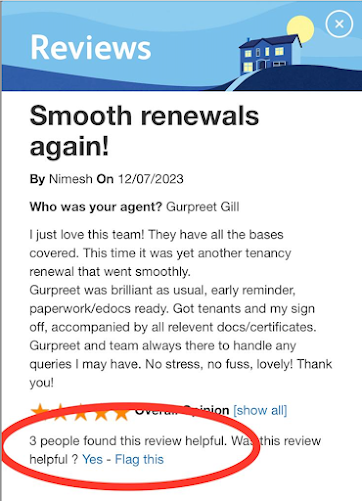As regular readers will know, moderation - the act of reading a review before publication to ensure, as far as is legally allowed, that it is not factually inaccurate or potentially misleading for future customers of the business under review - is a cornerstone of our service here at HelpHound. It has been described as the BUPA, or the AA, of reviews; something you hope your business will never need but is absolutely essential insurance against the time when such a case arises.
But how is moderation squared with the CMA core regulations? These state that...
- a business must not prevent a customer from posting their opinion, whatever that may be
- a business must not filter negative reviews in any way
- a business must not control the timing of a customer's review
- any business that invites any of its customers to post reviews, anywhere (on Google or a review site or, in the case of HelpHound members, on their own website) must allow all of its customers to post a review
It's those words in italics above that go to the core of moderation. If you look at any HelpHound member's website (all illustrations here are on mobile - the most used platform these days) you will see the following...
The reviews themselves (the most recent ones or all of them - that's up to the business) alongside a button that leads straight to all their reviews...
A 'Write a review' button that enables anyone to write a review to the business at any time of their choosing...
And finally - we incorporate a seemingly innocuous question: 'Was this review helpful?'. We estimate only about one in twenty readers bother to click this, so three 'Yes's' in less than four weeks is pretty impressive evidence that the review is being read...
What does this mean in practical terms?
By 'allowing' anyone who visits your website to write a review - that will subsequently be moderated by us - your business is fully compliant with the CMA regulations. You don't have to actively 'invite' all of your customers to post a review (although, of course, most of our clients do, and many go a step further and include a link to writing a review to their website in the signature block of their emails, for instance - because far better to have an inaccurate review written to your website where it can be moderated - and a customer possibly saved at the same time - than find its way direct to Google).
What follows from this?
Credibility. All of our most successful client businesses employ their reviews as a cornerstone of their sales and promotion practices - in window displays, on Twitter, Facebook, Instagram, and now even TikTok - as well as showing them to potential customers in face-to-face situations. And they are able to do this because they have a ready answer to potential customers who are, quite understandably, cynical about online reviews in general. They are able to both say and demonstrate...
- That anyone can write a review
- At any time of their own choosing
- That the review - every review - will appear on the business's website
- And the reviewer will be automatically invited to copy their review to Google
Does this mean HelpHound can guarantee that a business will not receive any 'inaccurate, potentially misleading, or just plain unfair' reviews?
Bear with us! When we introduced moderation to reviews - the first, and to date the only, review management system to do so - we wondered just how much value such moderation would add for all parties concerned: the reviewer, the business under review, the regulators and Google. Well, ten years on we need wonder no more.
Let's first look at the moderation process in detail:
Stage 1: the review is written and posted through the business's website - but not yet published; this flags up a notification to our moderator who reads the review.
Stage 2: The review falls into one of three categories;
- it is 'clean'; it contains no spelling mistakes or grammatical errors - and is therefore posted to the business's website to be read by anyone visiting that site. An automated email is immediately sent to the reviewer inviting them to copy their review to Google. That email contains the text of their review and a direct link that opens the business's Google review box, so there's no chance of the reviewer saying 'I didn't know how to post a Google review' or 'I couldn't find where to copy my review'.
- it contains spelling and/or grammatical errors that would render the review next to valueless for anyone attempting to rely on it. In most such cases our moderator will simply correct the errors without recourse to the reviewer. If it is impossible to discern the meaning of the review (bear in mind that nearly 10% of the UK population speak English as their second language) the moderator will email the reviewer asking for clarification.
- it contains obvious errors of fact or potentially misleading statements (or comments that would render the reviewer liable for actionable libel - for an example see this case history). In this case the moderator will contact the reviewer and the business - separately - in an attempt to correct those elements of the review.
Stage 3: At the close of all three of these processes the review is published in its finished form, whether or not the reviewer and HelpHound (and the business) have agreed to modifications.This latter point - 'whether or not...' is fundamental. Any attempt to prevent the reviewer having their say, however inaccurate or misleading that may be, will go against the CMA's core regulations. Before you say 'Well, here we are back at square one again' let's look at some real-life numbers. In a sample of 1000 reviews, we mined down to see which fell into each category: 871 fell into the 'Clean' category. That doesn't mean they contained perfect Byronic prose (or that they all rated the business 5*), just that they would make sense to the average consumer who might rely on them to point the way to a decent business (or not). 93 fell into the 'Spelling and or grammatical error' category, meaning our moderator corrected the errors and they were published. 36 fell into the 'errors of fact or potentially misleading statements' category and required dialogue between the parties in an attempt to iron out those contentious issues. In the end in only 4 cases did the reviewer insist - as is their right under the law - to have their original review published (at this point it is best that we remind you that the business has a right to respond under any review, be it HelpHound or Google).
So: HelpHound's moderation has the following effects - definite benefits for all concerned...
1. All the reviews posted to HelpHound and copied onto Google will make sense to a reader
2. The overwhelming majority of reviewers that have their reviews corrected - be it for spelling/grammar, errors of fact, or potentially misleading statements - nearly 10 percent overall, are pleased that HelpHound intervened. It turns out that few people - fewer than perhaps we expected when we first introduced moderation - actively want their names (or even pseudonyms) attached to erroneous reviews, on the business's site or on Google
3. A tiny minority go against the grain - down from four percent before moderation to a fraction under half a percent afterwards. This saves businesses from untold pain of the kind that can be experienced when on the receiving end of an unfair, inaccurate or plain misleading review - here's an example that we managed to have Google take down after it had made the national press. N.B., In this case, we had the expertise to a) follow Google's appeals procedure to the letter and b) establish as a matter of fact that the reviewer had no personal knowledge of the business under review - a contravention of Google's Terms of Service. Google will not, for instance, allow an appeal against a review simply because the business has no knowledge of the reviewer
How does all of the above benefit businesses?
How to stand out from the crowd - safely and credibly? And yes, those stars next to the business's listing (first in organic search, as well as leading the Google 3-pack) are derived from the business's own reviews.
It's simple: it gives businesses the confidence to 'invite' and 'allow' reviews - to their websites (where they own the reviews - an increasingly valuable business asset: data). It also contributes to the business's SEO in search (up to 15% of Google's total score according to sources - just check any HelpHound member's position in local search). And it means that the business is always in compliance with the CMA regulations (they won't be cherry-picking or gating) and, most important of all, it drives new business (see these case histories).
In summary
- 'Allowing' reviews to be written about your business ensures compliance with the CMA regulations
- 'Inviting' reviews does not mean you have to actively chase every single customer for a review - put candidly: you can leave 'Mr. Angry' off the list without any compliance issues, but bear in mind they can always click on the 'Write a review' button or post a review direct to Google. What do our clients tell us they do? Most would rather deal with such a customer offline and through our moderation process and then explain to readers that they have 'done their very best' if they ultimately choose to write a review to Google.
One thing is for sure: they feel that the advantages of HelpHound's moderation are more than justified given the other positive advantages of membership, far outstripping any comparable solution. We are, we believe, justifiably proud of the way that we enable our members to confidently put their best foot forward - if you are new to HelpHound please read this article about how those benefits can be quantified.




